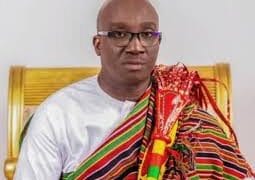The people have become cynical and deeply suspicious about democracy. Everywhere in Africa, Presidential Elections leave countries deeply polarized and worse yet, plunge countries into deep sociopolitical crisis.
The question that I would like all of us to examine is this: Is it the very presidential system itself that is flawed and in-adaptable to our peculiar political circumstances in Africa? For ease of understanding, let’s take Nigeria as a good example for our case study.
Interestingly, a closer look at Europe shows that France is the only European country that has adopted the Presidential System by which the Head of State is elected by universal suffrage with the entire country acting as one constituency. All other European countries are still practicing parliamentary democracy by which the Head of Government is elected by parliament following parliamentary elections in which the voters only get to elect their local MPs.
The parliamentary system is still followed by many Commonwealth countries such as India, Pakistan, Canada, Australia, Malaysia and Singapore. And yet the British Prime Minister and the German Chancellor are not any less powerful than the French President on the world stage.
The main advantage of the parliamentary system is that the Prime Minister can be changed without sending the entire country into shock. Greece and Italy changed their Prime Ministers few years ago but the two countries did not have to undergo any political catharsis.
The US has invented the system of the 3-Headed Hydra known as the Executive, the Legislative and the Judicial Branches of Government which in principle are all equally powerful with each providing checks and balances against the other.
However, recent events have demonstrated to us the limitations and flaws of this system in certain circumstances. The main flaw with the American system is that the outcome of Presidential elections is full of too many surprises and results in deeply confusing policy changes.
The Chinese have come up with their own solution based on the idea of a one-party state and government based on the Communist Party of China. It has evolved a “cursus honorium” for promoting Communist Party cadres through the system and vetting them into leadership positions up to and including that of President of the Republic of China. So far it seems to be the most stable political system in the world at the moment.
In the Russian Federation, the government which emerged following the collapse of the former Soviet Union has slowly shifted towards a system by which the Prime Minister who is elected by the Russian Duma operates like a kind of executive tandem or twin with the President who is elected by universal suffrage, with the two sharing power at the top.
In Africa, the Nigerians copied the US constitutional formula both at the federal and state levels. But the country has continued to be plagued with fraudulent elections at the Presidential level which has continued to send negative signals throughout the entire system.
The knotty style of evoking changes in a Presidential System has promoted corruption, since political office holders are aware of the cumbersome process of making changes like recalling elected representatives in the parliament and or impeachment process at any level.
More so, the restructuring of the federal, state and local government structures were made very cumbersome by the former military regimes. For instance, creation of new local government areas is tide to the approval of two third of members of the National Assembly in the Federal Constitution of 1979 as copied verbatim in the 1999 Constitution.
What a political extremely difficult or involved problem like a Gordian knot in a so-called democratic dispensation? We seriously need our own ‘Alexander The Great’ to cut the political Gordian knot now more than ever before!
Till date, no restructuring has been successfully made in Nigeria since the 4th Republic started since1999! The country has been fumbling and ‘whambling’ on the same spot like a barber’s chair without any progress recorded in the last 24 years! Why not go back to the Parliamentary System adopted and practised by our founding fathers at independence in 1960?
Then the cost of managing a presidential system is too enormous and is seriously affecting the economy of a country like Nigeria, where the recurrent expenditures covers over 90 percent of the national budget and execution of budget is as low as 30 percent! The South Africans have adopted an entirely different formula by which the South African President is elected by the South African Parliament based on candidates proposed by the different political parties that are represented in the parliament.
The question is what should we do to sanitise our African peculiar political system, taking into cognisance our cultural background and traditional political heritage that can evolve a new Pan African orientations, without rocking the boat? My question is mostly and particularly directed to a peculiar situation like Nigeria. We must think-out-of-box and proffer an alternative that’s more homegrown as s way forward.
Once and again, I ask you my intellectual co-travellers and patriots: Which way forward?
~ Segun Fadipe is a Lagos-based writer, social and political analyst and commentator. He can be reached on:
WhatsApp: 09163477953 &
emmavictor2007@yahoo.com















